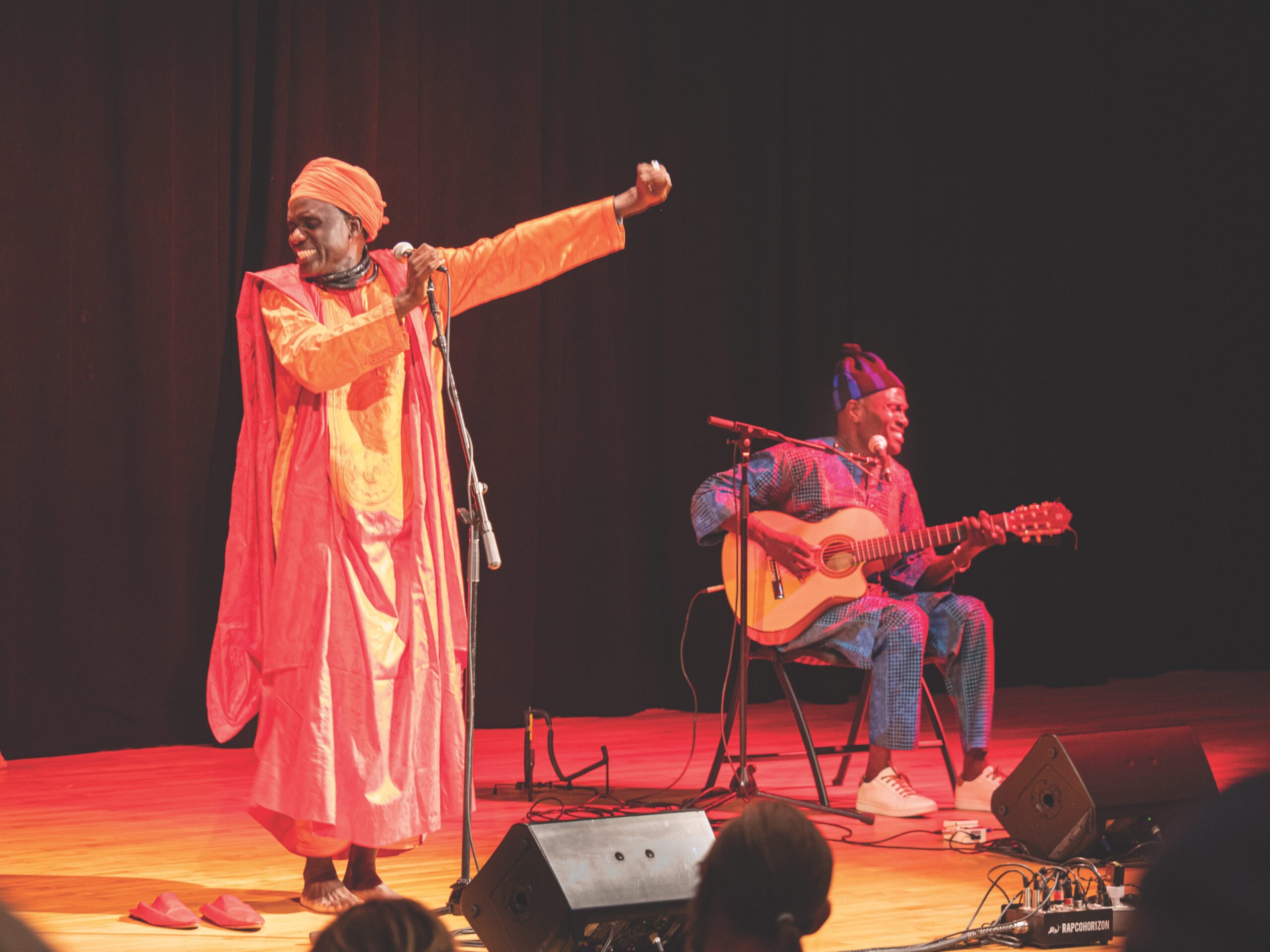“Voyage Sans Visa” mesmerizes Kresge crowd
September 30, 2022
 Alex Spear
Alex SpearOn Wednesday evening, Senagalese storyteller Boubacar Ndiaye and musicians Baye Cheikh Mbaye and Pape N’diaye Paamath performed at the Kresge Auditorium. The performance, entitled “Voyage Sans Visa or Voyage Without a Visa,” explored experiences of African immigration through dance, music and storytelling. The event, which was sponsored by multiple departments including Romance language and literatures, Music and Theater and Dance, was hosted by Associate Professor Katherine Dauge-Roth of the Francophone Studies department.
Through a melange of various artforms and episodic narrations, the artists discussed the highs and lows of African migration from the love one feels for one’s adopted home to the trauma of leaving one’s native land. The performers, who last visited the College in 2019, also highlighted the beauties of Senegal, the importance of family and of storytelling. Dauge-Roth explains that one of the motivations for inviting the artists was the Francophone Studies department’s new-found emphasis on oral tradition in their syllabus and courses following the lead of faculty members who specialized in post-colonial studies.
“In Francophone Studies, several years ago, we revamped our curriculum and one of the things that was really important to us was incorporating oral tradition in addition to written traditions in our thinking about various Francophone cultures around the world,” Dauge-Roth said. “When you talk about oral tradition, the only way to really work with it is by actually experiencing oral tradition and bringing an actual ‘griot’ [a traveling poet or musician who maintains the oral tradition in West Africa] to campus was a priority for me.”
Clad in colorful traditional dress, Ndiaye, Mbaye and Paamath synesthetically blended music, singing, dancing and speech to a mesmerized audience which included students as well as French-speaking Mainers from Portland and South-Central Maine. Conducted entirely in French and Wolof—a native language of Senegal—a program with a translation of Ndiaye’s narration was also provided to help those who did not speak French. The lack of language barrier did not necessarily hinder one’s enjoyment, however, according to Cole Hillyer ’25.
“I don’t speak French … but [Ndiaye] was very animated and funny,” Hillyer said. “It made me think about how the power of music transcends cultures to tell these very human stories that are relatable even if you’ve grown up in a completely different side of the world.”
The very human experience of exchange and storytelling, especially as the world emerges from the pandemic, also contributed to this wide-ranging appeal, Dauge-Roth argues.
“With people isolating off into their own little corners [during the pandemic], we’ve gone out of practice as to how to exchange with each other and how to be with each other and share space with each other. One of the things that I’ve taken from my interactions with [Ndiaye] is the importance of this human connection, and I think it is something we need to practice to keep good at,” Dauge-Roth said.
Ndiaye echoes this sentiment by claiming that storytelling is especially crucial in this world of increasing digitization and automation.
“To tell stories is to encounter the other. And when we encounter the other we learn about the other and then we can tell stories. Maintaining “links” or relationships is also necessary for our lives,” Ndiaye said. “We are at a distance and find ourselves alone with machines and this makes me scared. To tell stories to create relationships. We touch, we talk to each other, we see each other, we feel, we hear the beating of the heart, we become human; we don’t have that with machines. We have gone far and it is important to come back to where we started.”
Some quotes translated from French to English by Alexander Kaye.

Comments
Before submitting a comment, please review our comment policy. Some key points from the policy: